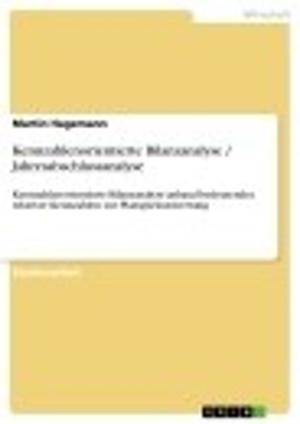Integrated Reporting of corporate financial and nonfinancial data: Delivering on its promise to contribute to sustainable development?
A critical analysis
Business & Finance| Author: | David Leicht | ISBN: | 9783656296720 |
| Publisher: | GRIN Verlag | Publication: | October 25, 2012 |
| Imprint: | GRIN Verlag | Language: | English |
| Author: | David Leicht |
| ISBN: | 9783656296720 |
| Publisher: | GRIN Verlag |
| Publication: | October 25, 2012 |
| Imprint: | GRIN Verlag |
| Language: | English |
Master's Thesis from the year 2012 in the subject Economics - Other, The Graduate Institute, language: English, abstract: There is wide-spread awareness about the fact that business has caused or aggravated many significant global crises, calling into question the sustainability of our current economy. Proponents of the emerging concept of Integrated Reporting, however, argue that corporations can reverse this trend by reporting their financial information together with information measured in CSR reports about at what costs to environment and society, also called footprint, a corporation has achieved its profits. Such opening up to disclosure, so the argument, creates incentives for corporations to reduce their footprint; and reputation and capital allocation will then reward well-performing, sustainable corporations leading to a dynamic mechanism that will contribute to sustainable development. Such an argumentation is simplistic and does not hold. Property economics establishes that within a property-based economy, corporations are faced with specific economic requirements as a result of the capitalization process, namely requirements to grow and secure profitability across time and competition. Such requirements leave corporations with no option than to subdue social and environmental considerations to their pursuit of profitability. The latter, in return, dictates that corporations use strategies like Integrated Reporting, arguing for voluntary corporate self-regulation in regards to costs imposed on society and environment, in order to shape a regulatory framework that accommodates their ability to respond to economic requirements. Corporations are moreover not likely to voluntarily report on any measure that will threaten their profitability. The concept of Integrated Reporting can not simultaneously be a corporate tool for shaping a specific legal framework that subdues environmental and social considerations; as well as a contribution to sustainable development, at least not as long as the latter is analyzed from an eco-social perspective that requires that economic interests be subdued to social and environmental considerations. Integrated Reporting can, however, play a role in informing society about the footprint of a given corporation if regulation establishes what is to be measured by corporations when disclosing their footprint.
Master's Thesis from the year 2012 in the subject Economics - Other, The Graduate Institute, language: English, abstract: There is wide-spread awareness about the fact that business has caused or aggravated many significant global crises, calling into question the sustainability of our current economy. Proponents of the emerging concept of Integrated Reporting, however, argue that corporations can reverse this trend by reporting their financial information together with information measured in CSR reports about at what costs to environment and society, also called footprint, a corporation has achieved its profits. Such opening up to disclosure, so the argument, creates incentives for corporations to reduce their footprint; and reputation and capital allocation will then reward well-performing, sustainable corporations leading to a dynamic mechanism that will contribute to sustainable development. Such an argumentation is simplistic and does not hold. Property economics establishes that within a property-based economy, corporations are faced with specific economic requirements as a result of the capitalization process, namely requirements to grow and secure profitability across time and competition. Such requirements leave corporations with no option than to subdue social and environmental considerations to their pursuit of profitability. The latter, in return, dictates that corporations use strategies like Integrated Reporting, arguing for voluntary corporate self-regulation in regards to costs imposed on society and environment, in order to shape a regulatory framework that accommodates their ability to respond to economic requirements. Corporations are moreover not likely to voluntarily report on any measure that will threaten their profitability. The concept of Integrated Reporting can not simultaneously be a corporate tool for shaping a specific legal framework that subdues environmental and social considerations; as well as a contribution to sustainable development, at least not as long as the latter is analyzed from an eco-social perspective that requires that economic interests be subdued to social and environmental considerations. Integrated Reporting can, however, play a role in informing society about the footprint of a given corporation if regulation establishes what is to be measured by corporations when disclosing their footprint.















